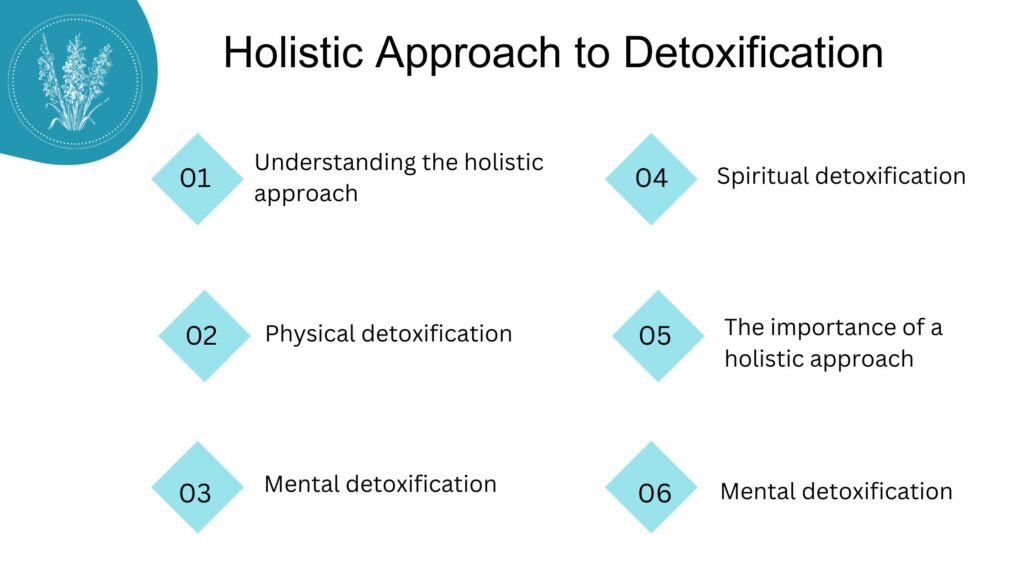In a world where stress and pressures abound, many individuals turn to alcohol as a coping mechanism. Yet, what starts as a reprieve can swiftly spiral into a dependency, wreaking havoc on both physical and mental health. Recognizing the need for a comprehensive approach to holistic alcohol detox, a growing number of individuals are embracing holistic methods to reclaim their wellness. At the forefront of this movement is recovery coaching, providing invaluable support and guidance on the journey to sobriety.
For those struggling with alcohol addiction, the prospect of detoxification can be daunting. Traditional methods often focus solely on the physical withdrawal symptoms, leaving the emotional and psychological aspects of addiction unaddressed. This can lead to a higher risk of relapse and hinder long-term recovery.
The good news is that there’s a growing movement towards a more holistic approach to alcohol detoxification. This method treats the whole person—mind, body, and spirit—to create a foundation for lasting wellness.
Why Choose a Holistic Approach to Detoxification?
Alcohol dependence disrupts the body’s natural balance, impacting everything from sleep and energy levels to mood regulation and overall well-being. Embracing a holistic alcohol detox perspective acknowledges this intricate connection and endeavors to tackle these facets concurrently, with the invaluable assistance of recovery coaching. Here are some key benefits of this method:

- Reduced Withdrawal Symptoms: One of the primary advantages of holistic alcohol detox is its effectiveness in managing withdrawal symptoms. Holistic practices like meditation, massage therapy, and acupuncture can help manage withdrawal symptoms such as anxiety, insomnia, and cravings.
- Improved Overall Health: Beyond addressing immediate withdrawal symptoms, a holistic alcohol detox approach prioritizes overall health and wellness. Focusing on healthy eating, exercise, and stress management promotes physical well-being, which can further improve mental clarity and emotional stability.
- Addressing Underlying Issues: Holistic therapy can help uncover the root causes of addiction, such as trauma, past experiences, or mental health conditions.
- Developing Coping Mechanisms: Techniques like mindfulness and stress management equip individuals with healthier ways to navigate challenges and manage cravings.
- Increased Self-Awareness: Holistic practices encourage self-reflection and understanding of triggers, which is crucial for long-term recovery.
- A holistic alcohol detox approach encompasses a range of integrated strategies and therapies that address the physical, mental, emotional, and spiritual aspects of addiction recovery.
The Role of Recovery Coaching in Holistic Detoxification
- Recovery coaching: is essential in supporting individuals throughout the holistic detoxification process. A recovery coach is a trained professional who acts as a guide and mentor on the path to sobriety. Here’s how:
- Personalized Support: Recovery coaches tailor their approach to each individual’s needs and goals. They provide ongoing support and encouragement, helping navigate challenges and setbacks.
- Accountability Partner: Having a coach as an accountability partner can be invaluable. Regular coaching sessions keep individuals focused and motivated on their recovery journey.
- Skills Development: Recovery coaches equip individuals with vital skills such as communication, relapse prevention techniques, and stress management, empowering them to build a healthy and fulfilling life.
- Bridging the Gap: Recovery coaches can act as a bridge between detox programs, therapy sessions, and support groups, ensuring a smooth and comprehensive recovery journey.Overall, recovery coaching is integral to holistic detoxification, providing individuals with personalized support, accountability, skills development, and guidance to achieve lasting sobriety and well-being.
Components of the Holistic Detoxification Program
Holistic detox programs are tailored to accommodate both the facility’s offerings and individuals’ specific requirements. While the specifics may differ, these programs generally incorporate fundamental components, often including the invaluable support of recovery coaching.
- Medical Supervision: A qualified medical professional oversees the detox process, ensuring safety and providing medication to manage withdrawal symptoms if necessary.
- Nutritional Guidance: A registered dietician creates a personalized meal plan to address nutritional deficiencies and promote overall well-being.
- Individual and Group Therapy: Therapy sessions provide a safe space to explore the underlying causes of addiction and develop coping mechanisms.
- Holistic Therapies: Holistic therapy techniques like massage therapy, acupuncture, yoga, and meditation help manage stress, improve sleep, and promote relaxation.
- Sobriety Coaching: Regular recovery coaching sessions provide personalized support tailored to their unique needs, fostering a collaborative relationship focused on empowerment and growth. Through consistent engagement, individuals develop essential skills and strategies to navigate challenges and achieve their goals effectively.
Building a Durable Recovery Foundation
Embarking on a holistic detox program marks the initial stride toward enduring sobriety. Following the alleviation of physical withdrawal symptoms, attention pivots towards sustaining sobriety and reconstructing a balanced life, often with the aid of recovery coaching that involves:
- Continuing Therapy: Continued therapy serves to tackle any latent mental health issues and serves as a preventive measure against relapse, offering sustained support for individuals on their path to recovery.
- Support Groups: Engaging with fellow individuals in recovery offers a valuable source of support and encouragement and fosters a profound sense of belonging within a community of shared experiences. This connection is vital in navigating the journey to sobriety and maintaining stability amidst challenges.
- Healthy Lifestyle Practices: Emphasizing the importance of nutritious eating, consistent physical activity, and maintaining healthy sleep habits is essential for sustaining overall wellness over the long term. Prioritizing these lifestyle factors contributes significantly to one’s enduring well-being and vitality.
- Relapse Prevention Planning: Developing a plan for managing cravings and triggers can help individuals stay on track during challenging times.
Conclusion
The journey to overcoming alcohol dependence is challenging but incredibly rewarding. A holistic alcohol detox approach offers a more comprehensive and sustainable path to recovery. With the support of a qualified medical team, a recovery coach, and various therapeutic modalities, individuals can reclaim their well-being and build a fulfilling life free from alcohol dependence.
Through the integration of recovery coaching and a comprehensive range of therapeutic modalities, individuals are empowered to address the root causes of addiction, cultivate healthier habits, and forge a path toward lasting sobriety and holistic well-being.
Take the first step towards holistic alcohol detox today by reaching out to us by visiting https://healingus.org/ or by calling us at 1-833-300-HOPE (4673) and discover the transformative power of embracing wellness in every aspect of your life.
FAQ
1. Is It Safe to Detox From Alcohol at Home?
Detoxing from alcohol at home can pose serious risks, especially for individuals with severe alcohol dependence or underlying health conditions. Without medical supervision, withdrawal symptoms can escalate rapidly and lead to potentially life-threatening complications such as seizures or delirium tremens. It’s crucial to seek professional help from a healthcare provider or detox facility to ensure a safe and supportive environment during detoxification.
2. What sets holistic alcohol detoxification apart from traditional methods?
Unlike traditional detox programs that focus solely on the physical aspects of addiction, holistic detoxification considers the interconnectedness of body, mind, and spirit, incorporating various therapeutic modalities to address the core causes of addiction and facilitate overall wellness.
3. What are the benefits of holistic alcohol detoxification?
By embracing a holistic approach, individuals not only detoxify their bodies from alcohol but also cultivate healthier habits, address underlying mental health issues, and foster a sense of empowerment and resilience in their journey toward long-term sobriety and well-being.



